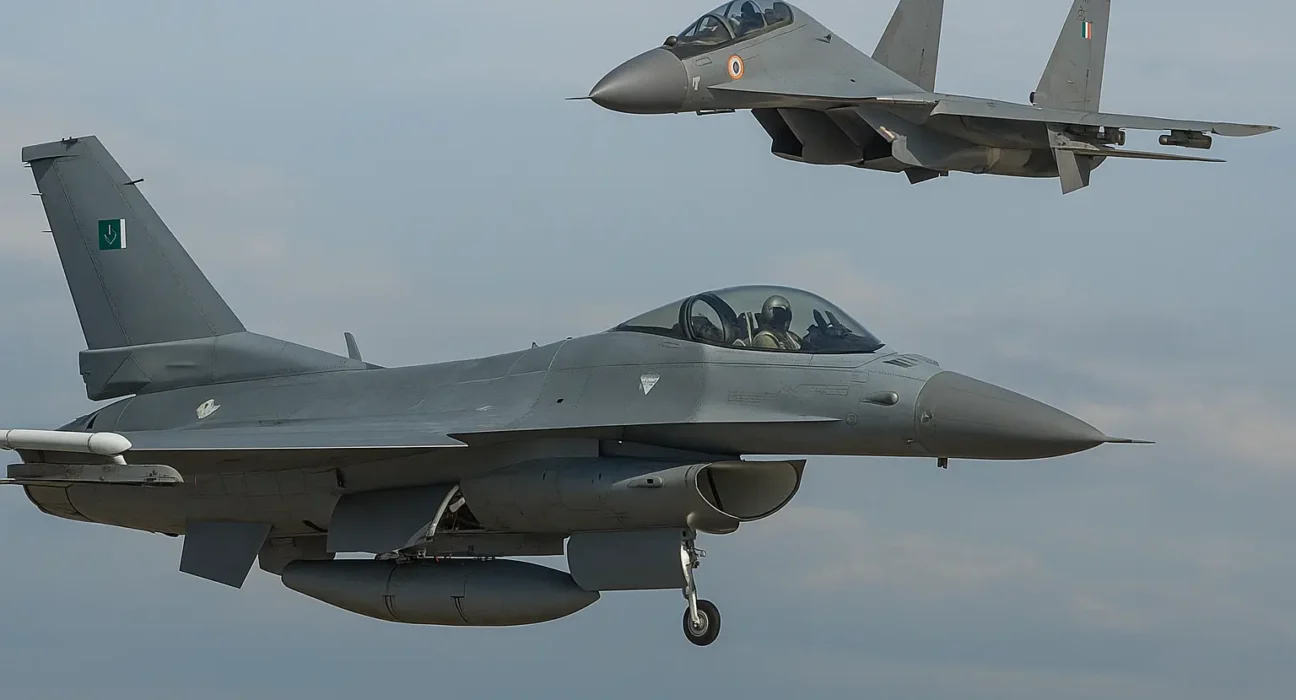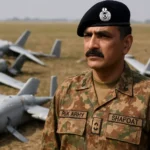125 Fighter Jets from Pakistan and India Engage in One-Hour Aerial Standoff

One of the most in-air combat setups ever in recent times, an alleged 125 fighter jets from Pakistan and India were involved in what seemed to be a stalemate that lasted over an hour. The incident that occurred at the volatile Line of Control (LoC) has drawn attention to that shaky peace in South Asia.
Going by defense wonks and foreign observers the engagement would be a major escalation of military readiness, despite both sides avoiding an actual battle.
High-Stakes Aerial Maneuver Between Regional Powers
The aerial encounter was “the largest air activity since 2019”, and included a diverse array of various military planes including F-16s, Mirage 2000s, Su-30MKIs. Although no missiles were fired, the number of aircraft concerned speaks volumes for the severity of the incident.
Analysts feel the maneuver was not so much a show of strength but a calculated move in smoke screen for preparedness and national resolve. Pakistan air force (PAF) and the indian air force (IAF), apparently scrambled squadrons after these intense border surveillance alerts resulting in an explosive stand off in the skies..
Pakistan and India Avoid Escalation Despite Tensions
In spite of deployment of 125 jets, there were no reported aerial dogfights, nor missile exchanges. A senior Pakistani security official had confirmed that serious rules of engagement had been followed that had prevented the situation from descending into a greater engagement.
“We showed maximum restraint while expressing our operational preparedness,” the Pakistani official said to international media.
Indian defense sources said the same thing, meaning that the IAF had done what it did due to what it viewed as a “military necessity” without violating agreed-upon protocols.
Strategic Messaging and Military Posturing
The aerial standoff is more of a strategic message than a battle between the two world powers, claim experts. Quarrelling since time immemorial, both nations being under serious domestic and external political stresses, such military spectacles are generally intended for projecting strength, reassurance of deterrence, and testing of operational displays.
“What we saw was calculated brinkmanship ” said Air Commodore (Retd). Zahid Mehmood, Islamabad based defense analyst. “Both countries are shouting at each other and the world about how they are vigilant”.
This is not the first time these exercises have been conducted. But this time, the extent of involvement was unprecedented, more than 100 fighter jets were moving together over sensitive air corridors at a given moment.
Global Reaction and Diplomatic Monitoring
In the end, the event became instantly interesting for the leading world powers such as the US, China and the UN. All sides called for carefully considering the advent of the escalation of the number of armed forces by diplomatic means.
The UN Military Observers Group in India and Pakistan (UNMOGIP) allegedly stepped up surveillance activities at the region after the clash. Their proximity to major localities in Azad Jammu & Kashmir and Indian-administered Kashmir also explained why it was possible to validate that no physical breach took place in the course of the incident.
Historical Parallels: Echoes of the 2019 Balakot Crisis
Observers began comparing this latest aerial exercise to the Balakot airstrike incident in 2019 of Indian jets penetrating across Pakistani skies subsequently triggering reciprocity and capture of Abhinandan Varthaman pilot of India.
This time at least, both air forces were restrained and coordinated, perhaps they learned from experience. The near clash is a telling example of the fact that tiny incidents even in such an embattled area can have gigantic geopolitical ramifications.
The Role of Surveillance and Technology
In the incident, there were also evident the rising importance of monitoring technologies, AWACS (Airborne WARNING & Control System) and satellite monitoring in regional defense strategy. The two air forces utilized early warning systems and live sat navs to pick up aircraft movements and react in good time.
Jane’s Defence Weekly experts confirmed reports that ECMs and radar jamming were used for a while in the standoff, but without moving into offensive tactics.
Public Sentiment: A Mix of Pride and Anxiety
News of the aerial standoff flooded social media all over both countries. Hashtags such as #AirPower; #PakistanIndiaStandoff; #NoToWar were trended in Pakistan and India for hours.
Pakistan users commended PAF for the readiness, so it was renters testimony for national pride and sovereignty. In India also the same spirit poured in favor of IAF and many were calling for peace but praising the preparedness of the IAF.
Voice of concern also raised making calls for restraint and entreaty both of the governments to brake defense and diplomacy in favor of each other instead of forceful actions.
Diplomacy Over Dogfights: The Way Forward
Though the skies may have calmed, diplomats are busy in their circles. The Foreign Ministries of both nations reported that there are source confirmed backdoor communications in progress to avoid any misunderstandings that might trigger escalation.
Regional peace groups and think tanks have come out with joint statements urging Pakistan and India to re-establish formal peace talks on the issues surrounding border security and rules of the skies.
Final Thoughts: Strength Must Be Balanced with Responsibility
The recent incident between Pakistan and India through the combat of 125 aircraft in a fighter jet coming, might have escaped bloodshed, but it is a salutarious reminder of the volatility of the region.
Military power necessity notwithstanding, must be matched with sound leadership and diplomatic coherence. The international world continues to closely monitor South Asia, as it would be great to hope that restraint is not the exception, but the rule.









